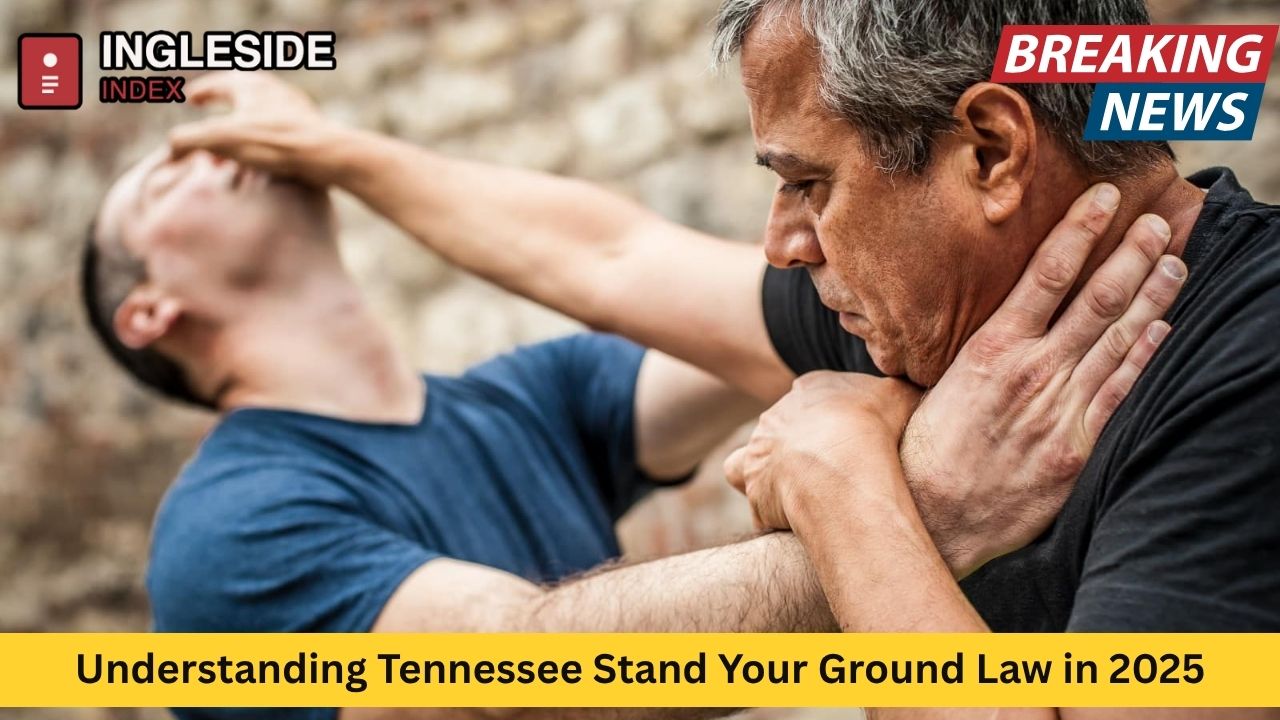In 2025, Tennessee remains among the majority of American states to have adopted a “Stand Your Ground” (SYG) law—a law that has shaped the landscape of self-defense and firearm use throughout the state’s urban and rural communities. The principles of these statutes, including when and how deadly force may be used, have critical implications for everyone from Nashville’s bustling neighborhoods to the rural expanse around Cookeville.
The Legal Foundation: Tennessee’s Self-Defense Statutes
Tennessee’s SYG law is codified in the Tennessee Code Annotated § 39-11-611. This law builds on the historic “castle doctrine,” which allows for self-defense in one’s home, and extends legal protections to a person lawfully present anywhere they have the right to be, with no obligation to retreat before using force in self-defense. Over the years, the law has evolved reflective of changing attitudes about crime, personal safety, and gun rights.
Key Elements of Tennessee’s Stand Your Ground Law
Lawful Presence Requirement
A critical component of the law is that the individual invoking it must be in a location where they are legally allowed to be. This might be at home in Murfreesboro, at a workplace in downtown Chattanooga, or even at a public park in Clarksville.
Imminent Threat and Reasonable Belief
The law requires a “reasonable belief” of imminent threat. Imminence means the danger—or perceived danger—is happening immediately. The belief must also be one that an average person would find reasonable under the same circumstances. For instance, if someone in Knoxville is threatened at a bus stop, the law assesses whether a reasonable person in that situation would fear death or serious bodily harm.
Proportionality of Response
Using deadly force is only permissible if the threat involves death or serious injury. If a disagreement escalates between fans after a Vols game in Knoxville but poses no serious threat, deadly force would not be justified.
Prohibition on Illegal Activity
Anyone invoking SYG protections cannot have been engaged in unlawful behavior at the time—even a minor infraction can nullify the defense. For example, someone trespassing in Bartlett who subsequently uses force cannot claim SYG protection.
The Castle Doctrine: Home, Vehicle, and Workplace Defense
While the castle doctrine forms the root of all SYG laws, Tennessee’s version extends the right to use force not just in private homes but also in vehicles and businesses. For example, a store owner in Memphis confronted by a violent intruder may lawfully use force, provided all other conditions are met.
The Interplay of Duty to Retreat and No Duty to Retreat
Previous Tennessee law imposed a duty to retreat: before resorting to force, a person had to attempt to avoid confrontation if safely possible. The SYG law abolished this requirement. Now, in Johnson City’s Central District as in rural Grainger County, if a person is somewhere they have a legal right to be and not engaged in crime, they have no duty to retreat before using force to defend themselves or others.
How Stand Your Ground Works in Real-Life Scenarios
Illustrative City Examples
-
Nashville: Outside the honky-tonks and tourist throngs, a Nashvillian leaving a late-night shift who’s threatened in a parking lot is lawfully entitled to stand their ground, presuming they are not the initial aggressor.
-
Memphis: In incident-packed Beale Street, if a bar patron is attacked without provocation and faces serious danger, they need not attempt to flee before responding with proportionate force.
-
Chattanooga: A resident meeting friends downtown is assaulted. If the attack is credible and imminent, the individual can use force immediately, without first retreating.
-
Knoxville: During a home invasion in Fountain City, the homeowner is presumed to possess a reasonable fear of harm. This presumption extends to their vehicle or workplace.
2025 Legislative Updates and Ongoing Debates
Recent legislative sessions have continued to debate the scope of property defense and the standard for using deadly force. In early 2025, a bill introduced in the State Legislature ignited a statewide conversation about whether to lower the bar for using deadly force for property defense, reflecting ongoing tension between protecting victims and preventing unnecessary violence.
Law enforcement agencies in Nashville, Memphis, and Knoxville have voiced mixed opinions, balancing community safety with individual liberty. Civil rights groups and gun owners’ organizations remain vocal on both sides of the debate.
Statistical Impact Across Tennessee Cities
Homicide and Firearm Death Trends
The enactment and amendments of SYG laws in Tennessee have correlated with measurable shifts in crime statistics, especially homicides involving firearms. Studies across the Southern U.S. show homicide rates have increased by as much as 10% following the implementation of such laws, with Tennessee following similar trends in its major metros and rural counties.
-
Memphis regularly ranks among the highest for firearm-related deaths per 100,000 residents. Analysts believe that SYG has contributed to both justified and unjustified shootings.
-
Nashville has seen a moderate uptick in homicide clearance rates, with law enforcement noting a rise in self-defense claims.
-
Chattanooga and Knoxville observe similar trends, with gun-related homicide rates climbing yearly since 2015.
Urban vs. Rural Analysis
While urban centers see the bulk of SYG-invoked incidents, rural areas such as in the Upper Cumberland region and the outskirts of Jackson also record cases, often involving property disputes or confrontations on private land.
High-Profile Cases and Legal Precedents
Over the past decade, several high-profile Tennessee cases, especially in Memphis and Nashville, have made headlines:
-
A 2023 case in Nashville involved a ride-share driver successfully defending against armed robbery, invoking SYG protections.
-
A home-invasion victim in Franklin was acquitted after using deadly force on an armed intruder.
-
In Memphis, a store owner’s case drew attention after security footage captured a rapidly escalating altercation, with the shooting ultimately ruled as justified self-defense.
These precedents have informed jury instructions across the state, clarifying what constitutes “reasonable belief” and influencing how prosecutors pursue charges.
The Social and Public Safety Debate
Public opinion is deeply split. While approximately 58% of Tennesseans (mirroring national trends) express support for SYG laws, citing the right to personal protection, significant concern exists about increased risks of escalated violence and racial disparities in legal outcomes.
Youth violence and unintentional shootings, particularly in areas like North Memphis and East Nashville, have triggered calls for policy reform from community leaders and advocacy groups.
Comparing Tennessee to Other Southern States
States like Florida, Georgia, and Alabama have substantially similar SYG statutes. Tennessee, however, differs in certain procedural aspects, such as the burden of proof shifting to prosecutors to disprove self-defense claims beyond a reasonable doubt.
In cities bordering Alabama and Georgia, such as Chattanooga and the surrounding region, residents sometimes find themselves surprised by cross-border legal differences. Travelers and residents alike must remain vigilant about local law’s particularities.
Responsible Use and Legal Risks
While Tennessee’s SYG statute offers broad protections, the law is not a “license to kill.” The actions of the person claiming self-defense are scrutinized for reasonableness and necessity. Engaging in reckless or aggressive conduct, initiating confrontations, or acting from anger rather than a legitimate fear of imminent harm can lead to criminal prosecutions.
Gun owners in Knoxville, Clarksville, and Jackson are encouraged to participate in self-defense and firearms training. Many legal experts in Nashville’s legal community recommend retaining documentary evidence, such as security footage or immediate witness statements.
What to Do if You’re Involved in a Self-Defense Incident
-
Remain at the scene unless doing so endangers your safety.
-
Call 911 immediately and report the incident truthfully.
-
Do not tamper with evidence; wait for law enforcement.
-
Request a lawyer before answering detailed questions.
-
Be prepared for an investigation, even if you believe your actions were justified by SYG law.
-
Document everything, including names of potential witnesses.
Legal professionals throughout Tennessee urge that, even with clear SYG protections, each case’s outcome rests on specific facts and the perspectives of law enforcement, prosecutors, and juries.
Conclusion
Tennessee’s Stand Your Ground law represents an assertive stance on personal safety, providing significant legal protection for those faced with immediate threats of violence. From Nashville’s busy streets to the peaceful suburbs of Maryville, the law empowers individuals but also demands accountability and caution.
As debates over firearm policies, public safety, and rights continue into the next legislative session, Tennesseans are urged to stay informed, act responsibly, and seek legal guidance when in doubt. The state’s cities—from Memphis to Johnson City—remain at the forefront of this evolving discussion, shaping a law that directly impacts thousands each year.
Understanding the nuances of the Tennessee Stand Your Ground law in 2025 is more than a legal exercise—it’s a crucial part of navigating life in a state where the balance between self-defense and public safety is both a personal and community concern.











Leave a Comment